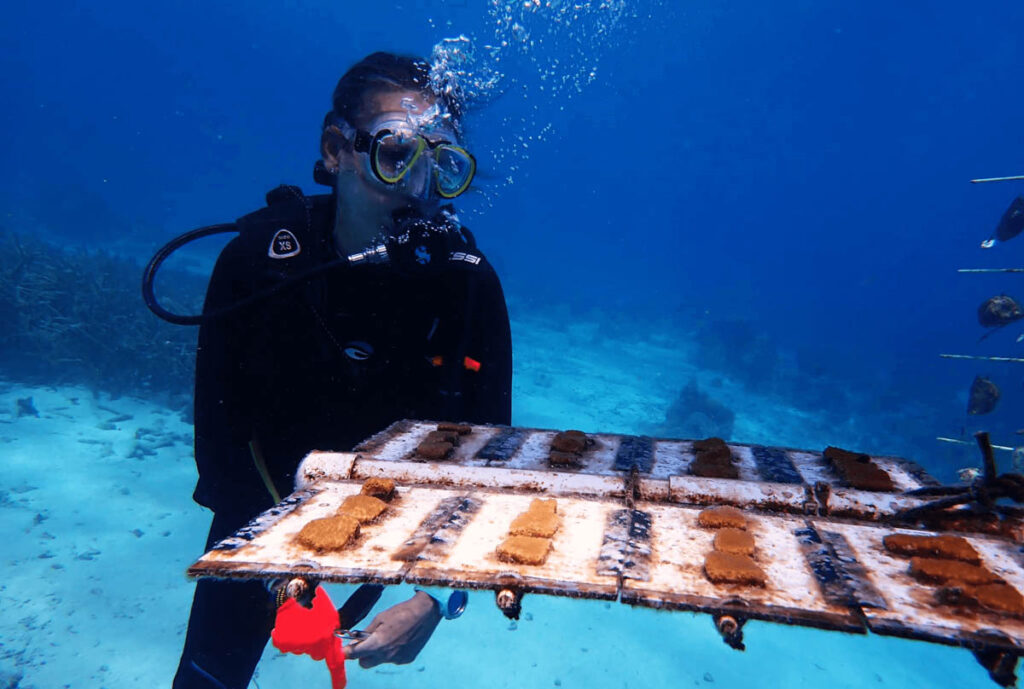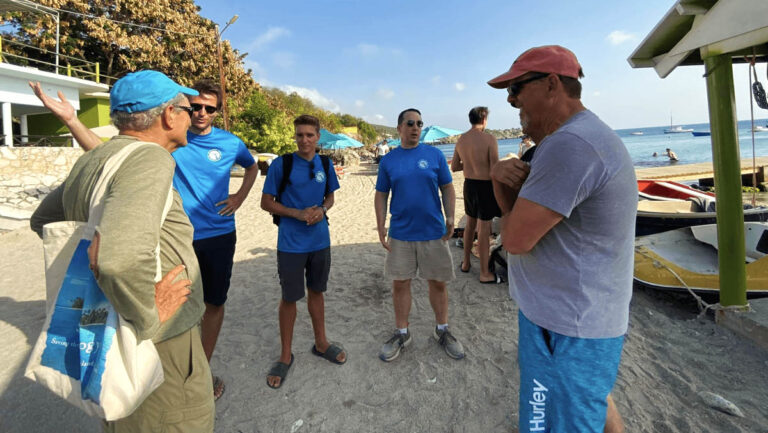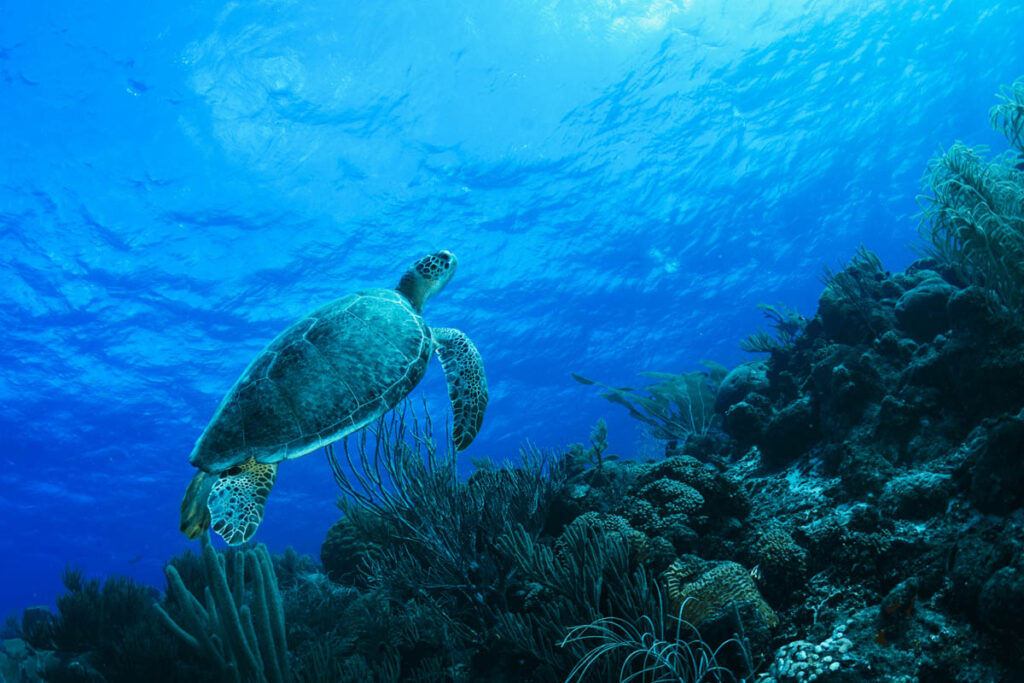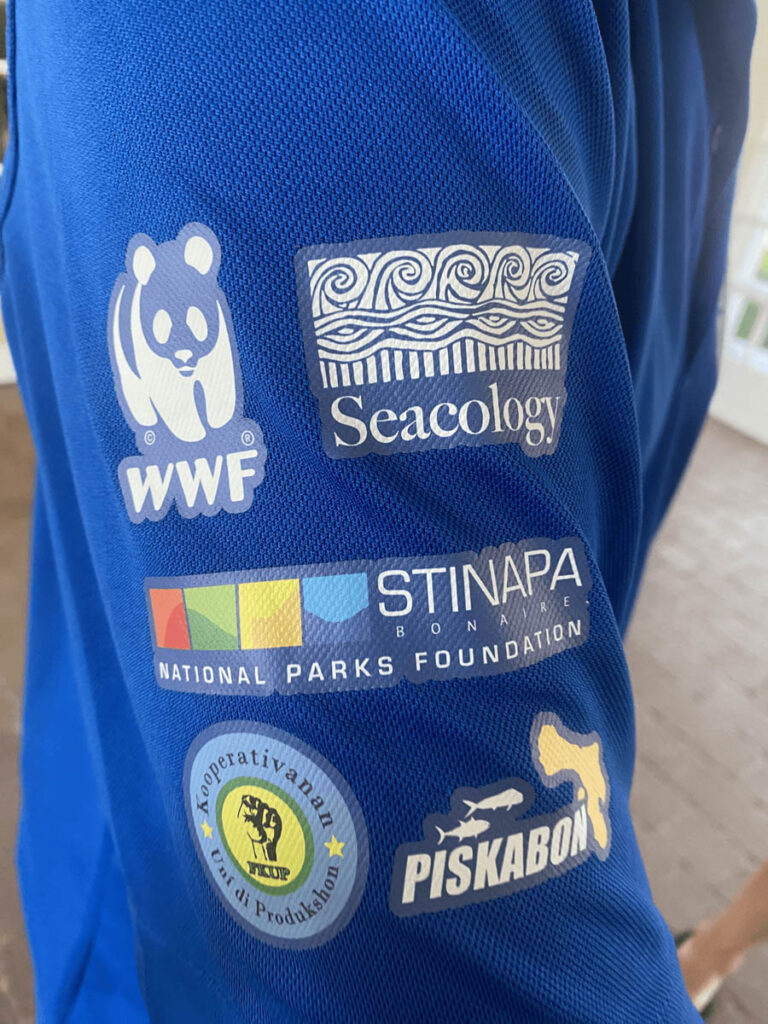Islands are not just pieces of land surrounded by water; they are sanctuaries of biodiversity, cradles of unique cultures, and vital components of our planet’s ecological balance. However, these paradises face numerous threats ranging from habitat destruction to climate change. Recognizing the urgency of protecting these fragile ecosystems, Seacology has emerged as a beacon of hope, championing the preservation of island habitats worldwide while empowering local communities. In this article, we are diving into Seacology’s mission, its global impact, and its generous support for key conservation initiatives in Curaçao.
The Seacology Story:
Seacology, founded in 1991 by Dr. Paul Alan Cox (American ethnobotanist), operates on a simple yet powerful principle: conservation through collaboration. Unlike traditional conservation organizations, Seacology adopts a community-driven approach, partnering directly with island communities to address their needs while safeguarding precious ecosystems.
At the heart of Seacology’s philosophy lies the belief that sustainable conservation can only be achieved by empowering those who depend on the natural resources of their islands. By working hand in hand with local stakeholders, Seacology fosters a sense of ownership and stewardship, ensuring long-term protection for vital habitats.
A Global Impact of Seacology
Since its inception, Seacology has made remarkable strides in protecting island ecosystems across the globe. Through innovative projects and strategic partnerships, the organization has conserved millions of acres of marine and terrestrial habitat, spanning more than 60 countries.
What sets Seacology apart is its holistic approach, which integrates conservation efforts with community development initiatives. By providing tangible benefits such as clean water, education, and healthcare, Seacology incentivizes local communities to actively participate in conservation efforts, forging a sustainable path towards coexistence with nature.
Curaçao: A Jewel in the Caribbean Crown
Located in the crystalline waters of the Southern Caribbean Sea, Curaçao boasts stunning coral reefs, lush mangroves, and vibrant marine life. However, like many island nations, Curaçao faces a myriad of challenges including overfishing, habitat degradation, and climate change impacts.
In 2024, Seacology’s commitment to island conservation took center stage in Curaçao, where the organization provided generous support for three key initiatives: Reef Renewal Curaçao, Sea Turtle Conservation Curaçao, and the Queen Conch Hatchery. Additionally, Seacology provided additional funding to advance sustainable fishing practices through educational programs.

Reef Renewal Curaçao
Coral reefs are the lifeblood of marine ecosystems, supporting a quarter of all marine species despite occupying less than 1% of the ocean floor. However, these invaluable ecosystems are under siege from rising sea temperatures, pollution, and destructive fishing practices.
Reef Renewal Curaçao, a flagship project supported by Seacology, aims to reverse the decline of coral reefs by implementing innovative coral propagation and restoration techniques. By engaging local communities in reef restoration efforts, Seacology is optimistic that their support will enable Reef Renewal Curaçao to continue their important work revitalizingd amaged ecosystems and fostering a sense of stewardship among residents.
Sea Turtle Conservation Curaçao
For millions of years, sea turtles have roamed the world’s oceans, serving as keystone species and indicators of ecosystem health. Yet, these ancient mariners face numerous threats including habitat loss, poaching, and accidental capture in fishing gear.
In collaboration with Sea Turtle Conservation Curaçao, Seacology is supporting their efforts to protect Curaçao’s sea turtle populations through research, monitoring, and community outreach. By raising awareness about the importance of sea turtles and implementing measures to mitigate threats, Seacology is aiding Sea Turtle Conservation Curaçao to safeguard these iconic creatures for future generations to admire.
The Queen Conch Hatchery
Conch, revered for their succulent meat and ornate shells, are a cultural and culinary staple in many island communities. However, unregulated harvesting has led to depleted populations, jeopardizing both ecological balance and traditional livelihoods.
In Curaçao, Seacology’s support for the Queen Conch Hatchery initiative aims to conserve dwindling conch populations through captive breeding and sustainable harvesting practices. By collaborating with local fishermen and authorities, Seacology is helping to ensure that conch populations thrive while preserving cultural traditions and supporting coastal communities.
The project “Conquer the Future” is investigating the mortality and growth of Queen Conch juveniles, cultured at Curacao Sea Aquarium, after they have been outplanted in the wild. These experiments with small numbers of Queen Conch will take place in both Curaçao (Spanish Water) and Bonaire (Lac Bay). WWF-Dutch Caribbean is the main sponsor of this project, Seacology is the co-sponsor.
Advancing Sustainable Fishing Practices
Fishing is an integral part of Curaçao’s economy and culture, but unsustainable practices have led to overfishing and the depletion of key fish species. Recognizing the need for change, Seacology has provided a grant to the Federation of Cooperative Production (FKUP) to support innovative educational programs aimed at promoting sustainable fishing practices.
Through this initiative, Seacology hopes to instill a sense of environmental stewardship among local fishers. The educational programs focus on teaching sustainable fishing techniques, such as selective gear use, seasonal restrictions, and size limits, which help protect juvenile fish and allow populations to recover. Additionally, the programs emphasize the importance of marine conservation, the impact of overfishing on the ecosystem, and the benefits of sustainable practices for future generations.
By supporting the FKUP, Seacology is helping to ensure that local fishers have the knowledge and resources to adopt sustainable practices. This not only helps preserve fish stocks and marine biodiversity but also secures the livelihoods of fishing communities in the long term.
WWF-Dutch Caribbean supported in 2023 the first round of the sustainable fishing training organized by FKUP in Curaçao. Due to lack of budget at WWF-DC, FKUP has been looking for another sponsor for this training. They found Seacology to fund more training.
A Beacon of Hope for Island Conservation
In a world grappling with environmental crises, Seacology stands as a shining example of what can be achieved through passion, perseverance, and partnership. By empowering island communities, Seacology not only protects precious ecosystems but also enriches lives and preserves cultural heritage.
As we navigate the uncertain waters of the 21st century, organizations like Seacology remind us that the fate of our planet lies in our hands. Through collective action and unwavering dedication, we can safeguard the treasures of our islands and ensure a sustainable future for generations to come.










